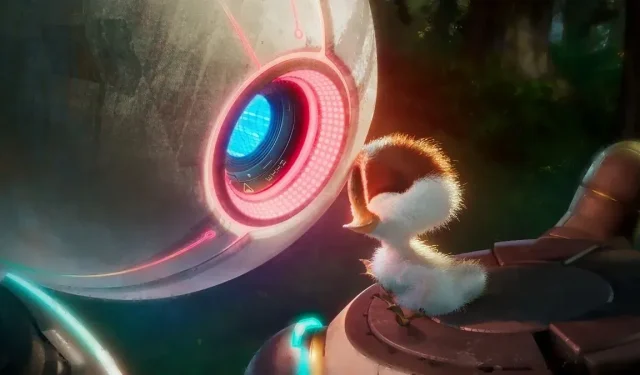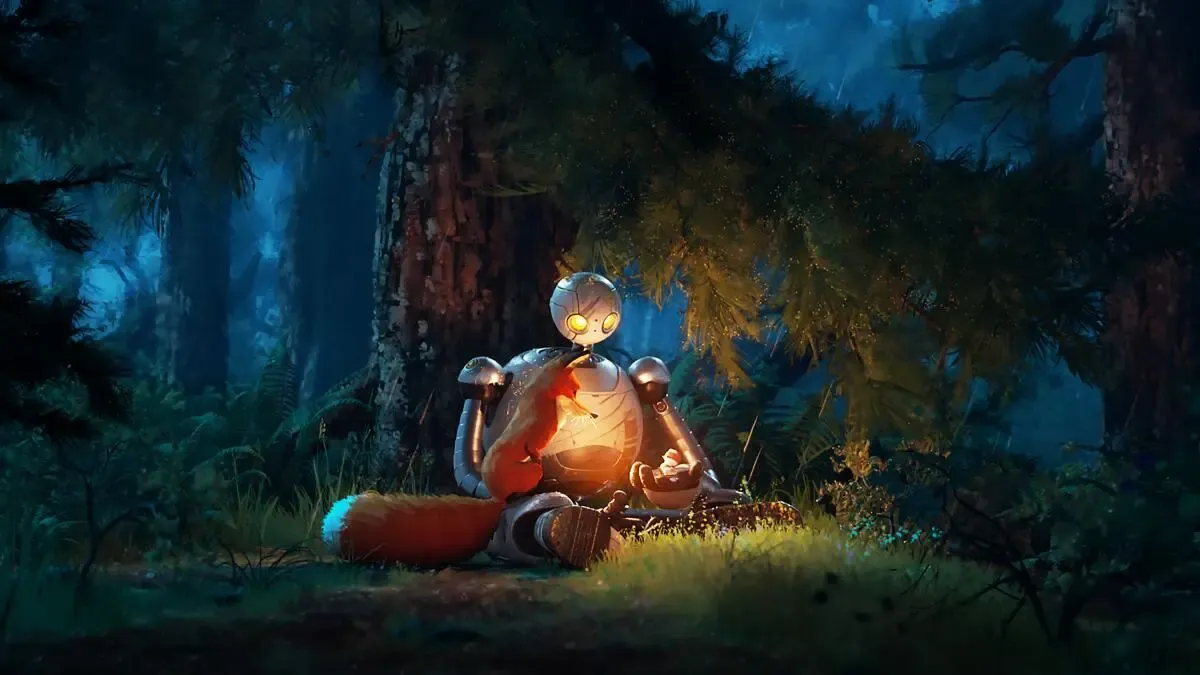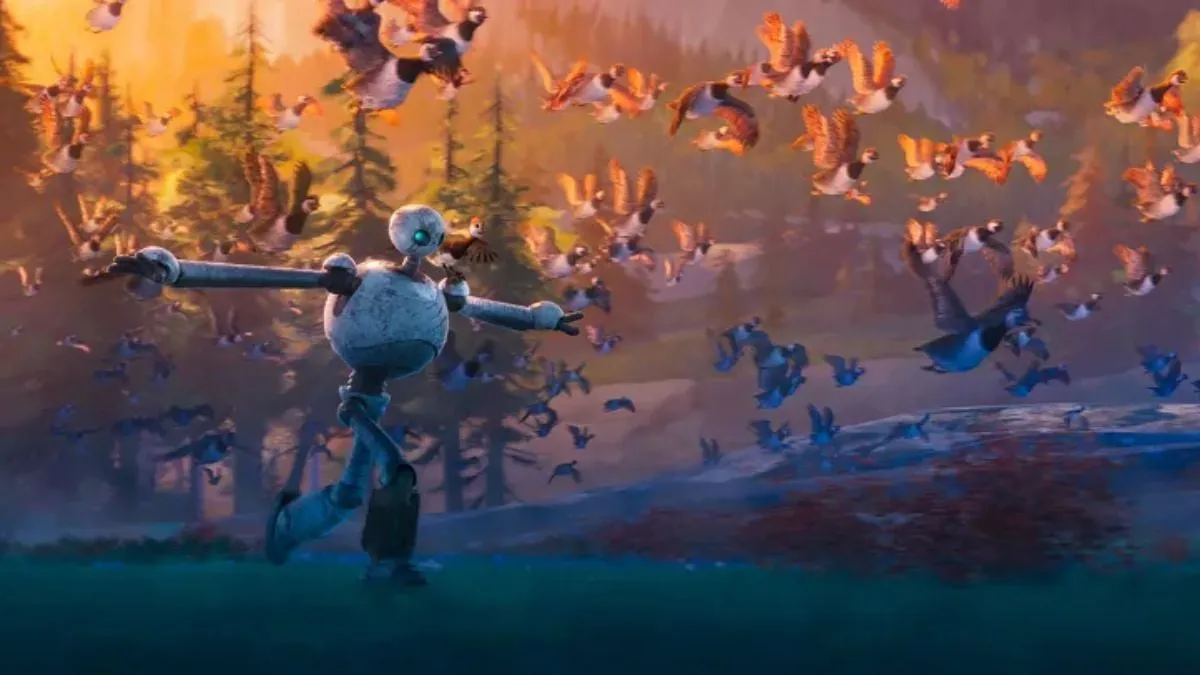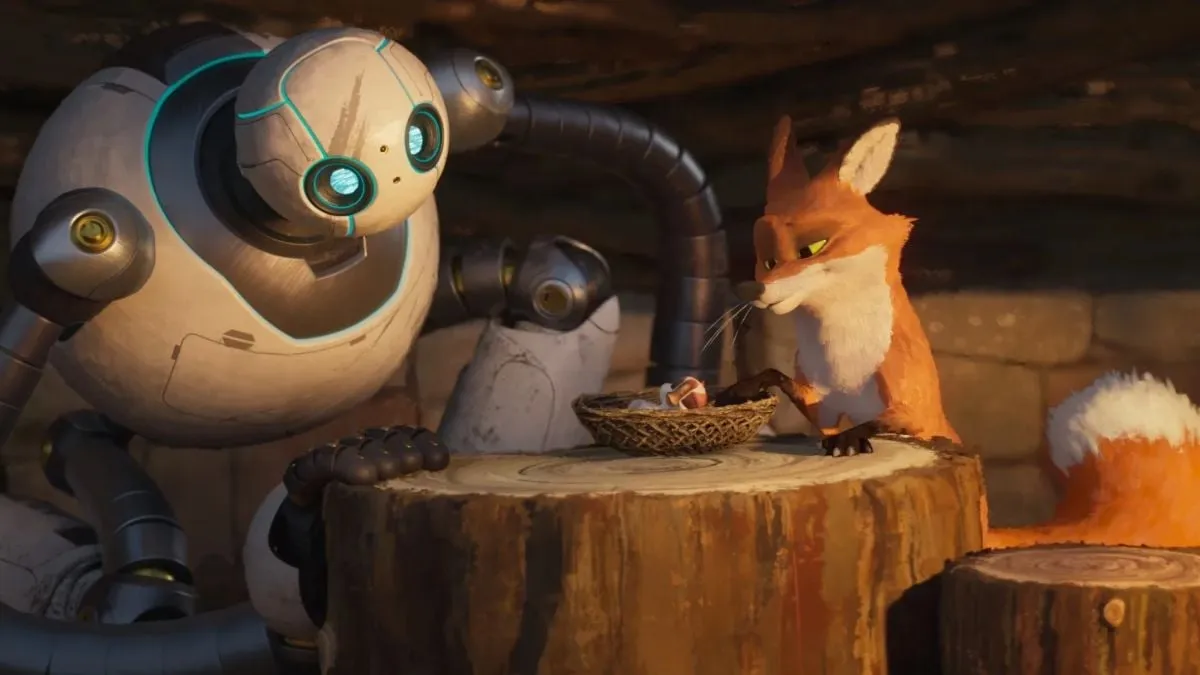
Chris Sanders’ animated feature, The Wild Robot, stands out as one of the most endearing films of the year, exploring the profound implications of motherhood through the lens of an artificial intelligence unexpectedly thrust into parenting. This narrative invites a deeper dialogue about the significance of choice—especially for those who opt out of motherhood.
In The Wild Robot, we encounter ROZZUM Unit 7134 (voiced by Lupita Nyong’o), a robot from Universal Dynamics that washes ashore on an island after a storm damages its cargo vessel. Curious wildlife activates ROZZUM, leading to an unintended disaster: the destruction of a goose’s nest, leaving one lone egg among the aftermath. Roz resolves to defend the remaining egg from predators, namely the cunning fox, Fink (played by Pedro Pascal). When the gosling hatches, it instinctively bonds with Roz and sees her as its mother. Despite her programming, Roz opts to teach Brightbill (Kit Connor) the essential skills of swimming and flying before his impending migration, after which she intends to send a distress signal back to her creators.

In an era where the risks of AI are increasingly highlighted, The Wild Robot introduces an inspiring notion: that the powerful emotion of motherhood can transform a robot’s programming. The journey humanizes Roz, showcasing that the act of becoming a mother inherently changes one’s identity. A woman’s life is drastically altered when she steps into the role of a mother, whether those changes are physical or emotional, resulting in a permanent transformation.
As Roz takes on the role of caretaker for Brightbill, she evolves from a robot designed to mimic human interaction into a being that defies her original directives to nurture what she views as her child. The story poignantly captures Roz’s sacrifices, demonstrating her willingness to place Brightbill’s needs above her own as she prepares him for the challenges of winter. We also witness Brightbill’s adolescent rebellion, as he occasionally resents Roz for isolating him from his peers. Moreover, the film underscores that the efforts of a ROZZUM, like those of a mother, often go unappreciated. Unlike a comprehensive program, Roz experiences emotions and care for Brightbill.

In her journey of nurturing Brightbill, Roz undergoes not just emotional but physical changes. She sustains damage, losing a leg and acquiring rust; she even bears marks where Bill would rest as he sleeps. The narrative shifts her identity from the numerical ROZZUM to Roz, a name that resonates with warmth and motherhood.
Ultimately, despite Universal Dynamics’ attempts to restore her former programming, Roz’s heart and personality have been irreversibly transformed.
While The Wild Robot honors the beauty of motherhood through its touching narrative, it also evokes reflection for those who may not envision themselves in that role. The transformative journey of Roz serves as a testament to the emotional and philosophical weight of opting out of motherhood.
Roz’s experience illustrates that motherhood carries great responsibility; it necessitates unwavering commitment to the survival of another being. Discovering that Brightbill is a fragile runt highlights this demand—without Roz’s intervention, his chances of survival would have been slim in a perilous environment. Raising him requires total dedication, showcasing that humans, much like Roz, can be reshaped by the profound responsibilities of parenting.
Being a mother extends beyond the mere decision; it demands daily choices, resilience, and an abundance of patience. This task proves especially challenging for single parents like Roz, who receives limited support from friends like Fink. This raises the question: can such a significant life decision be taken lightly? It involves physical transformations, intense lifestyle adjustments, and mental preparedness even before the child is born. The complexities only amplify after birth.

The Wild Robot conveys two vital lessons: Firstly, the beauty of motherhood is profound. Secondly, however, it emphasizes that motherhood is not universally suited for everyone. The essence of choice is paramount here—it’s about deciding whether to modify one’s life trajectory profoundly and whether one feels prepared to take on the weighty responsibilities of parenthood. It acknowledges that not everyone is mentally equipped to embrace such a monumental role and that it’s acceptable to feel hesitant about the journey into parenthood.
While Roz exemplifies a remarkable maternal figure, one must consider that not all robots in her model would succeed similarly. For example, Pinktail the opossum (voiced by Catherine O’Hara) embodies a different type of motherhood, while Fink, having learned by observing Roz, may never feel inclined to follow suit. He relishes his role as the fun uncle without any pressure to change.




Leave a Reply